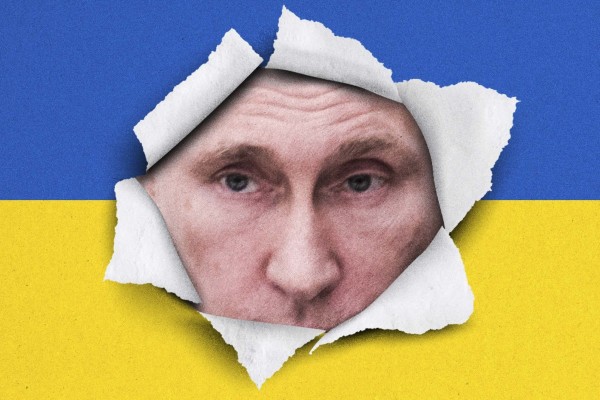-

Has China really reached the end of its economic boom?
Western economists continue to argue that the Chinese economy is heading down the drain. As Michael Roberts argues, this critique is not factually correct, and it aims to distract attention from the reality that the Western capitalist economies (apart from the United States) are floundering in stagnation and near slump.
-

BRICS: Getting bigger, but is it any stronger?
The three-day summit of the BRICS leaders ends today. The BRICS are Brazil, Russia, India, China and South Africa. Russian leader Vladimir Putin was not present in person. The five BRICS nations now have a combined GDP larger than that of the G7 in purchasing power parity terms (a measure of what GDP can buy domestically in goods and services).
-

Reconstructing Ukraine: Private capital floods in
The aim of the Ukraine government, the EU, the US government, the multilateral agencies and the American financial institutions now in charge of raising funds and allocating them for reconstruction is to restore the Ukrainian economy as a form of special economic zone, with public money to cover any potential losses for private capital.
-

SVB: From the valley to the chasm
While relatively unknown outside of Silicon Valley, SVB was among the top 20 American commercial banks (the 16th largest), with $209 billion in total assets at the end of last year, according to the FDIC. It’s the largest lender to fail since Washington Mutual collapsed in 2008 during the global financial crash. So, contrary to some reports, SVB is no minnow.
-

Russia-Ukraine: the economics of one year of war
Don’t expect a fast post-war recovery as happened after the Second World War with the US Marshall Plan. By the end of this decade, even if reconstruction goes well and assuming that all the resources of pre-war Ukraine are restored (eastern Ukraine’s industry and minerals are in the hands of Russia), then the economy would still be 15 percent below its pre-war level. If not, recovery will be even longer.
-
_600_400_90_s_c1.jpg)
Keynes and the left
The ideas and theories of John Maynard Keynes still dominate the economic views and policy proposals of the leaders of the labour movement in the major capitalist economies. Keynes is seen as offering a ‘third way’ between the pro-capitalist ‘free market’ economics that dominates the universities and is often perceived as the opposite of dangerously revolutionary Marxian economics.
-

Central banks are applying ‘shock therapy’ to quell rising global inflation
Shock doctrine was the term used by Naomi Klein to describe the destruction of public services and the welfare state by governments from the 1980s. Now the major central banks are applying their own ‘shock therapy’ to the world economy, intent on driving up interest rates in order to control inflation, despite the growing evidence that this will lead to a global recession next year.
-

Italy: Lurching to the right
Italy goes to the polls on September 27. This is a snap election forced on Italy’s president because the ‘technocratic’ government under former ECB chief Mario Draghi fell after he lost majority support in parliament. That support was lost, partly because Draghi vigorously backed NATO support for Ukraine and partly because his government was determined to keep to the fiscal strictures of the EU Commission.
-

Will global inflation subside?
Recession fear is now at levels worldwide last seen in 2020, cautions Marxist economist and commentator Michael Roberts. At the very least, global inflation rates are still likely to be much higher than before the COVID pandemic by this time next year—and at the worst, the global economy could have entered a new slump only three years from the last one.
-

The Inflation Reduction Act and the four horsemen of the climate apocalypse
The announcement that US President’s Biden’s Inflation Reduction Act (IRA) has got the backing of pro-business Democratic Senator Joe Manchin has been greeted with a wave of optimism that the US target of cutting carbon emissions in half before the end of this decade (or 40 percent compared with 2005 levels), can be met.



